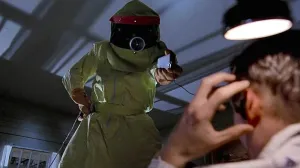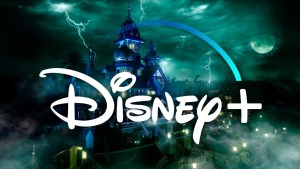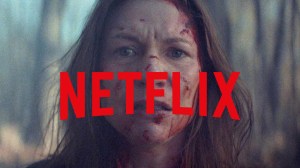The Walt Disney Company CEO Bob Iger says Hollywood’s demands in the ongoing WGA strike and the imminent SAG-AFTRA strike are “not realistic” and will have a “very, very damaging effect on the whole business.” Just one day after the executive renewed his contract to extend his stay at the helm of Disney through 2026, Iger appeared on CNBC’s Squawk Box on Thursday morning — just hours after talks broke down between the actors’ union and the studios. (In a statement, SAG-AFTRA president Fran Drescher said that the union was “eager to reach a deal that sufficiently addressed performer needs,” but the Alliance of Motion Picture and Television Producers responses to those demands “have been insulting and disrespectful of our massive contributions to this industry.”)
Videos by ComicBook.com
“It’s very disturbing to me. We’ve talked about disruptive forces onthis business and all the challenges we’re facing, the recovery fromCOVID which is ongoing, it’s not completely back. This is the worst timein the world to add to that disruption,” Iger told CNBC’s David Faber at Idaho’s Sun Valley Conference. “I understand anylabor organization’s desire to work on behalf of its members to get themost compensation and be compensated fairly based on the value that theydeliver. We managed, as an industry, to negotiate a very good deal withthe directors guild that reflects the value that the directorscontribute to this great business.”
Iger continued: “We wanted to do the same thing withthe writers, and we’d like to do the same thing with the actors. There’sa level of expectation that they have, that is just not realistic. Andthey are adding to the set of the challenges that this business isalready facing that is, quite frankly, very disruptive.”
Members of the Writers Guild of America have been on strike since May. On Thursday, SAG-AFTRA’s national board is expected to meet to call an actors’ strike. With both the WGA and SAG-AFTRA on the picket lines, the major Hollywood studios will face their first dual work stoppage since 1960.
The dual WGA and SAG-AFTRA strike “will have a very, very damaging effect on the wholebusiness,” Iger elaborated. “And unfortunately, there’s huge collateral damage in theindustry to people who are supportive services. I could go on andon. It will affect the economy of different regions, even, because ofthe sheer size of the business. It’s a shame, it is really a shame.”
In June, the actors’ union said its primary bargaining issues include “economic fairness, residuals, regulating the use of artificialintelligence and alleviating the burdens of the industry-wide shift toself-taping.”
“SAG-AFTRA is committed to ensuring our members are able to make aliving performing in scripted dramatic live action entertainment,” it said in a statement. “Thismeans ensuring increased compensation when our members work, shoring upthe funding of our Health, Retirement, and Pension Plans, and providingour members a meaningful share of the economic value created by theirperformances.”
On Thursday morning, Drescher said that SAG-AFTRA “negotiated in good faith and was eager to reach a deal thatsufficiently addressed performer needs, but the AMPTP’s responses to theunion’s most important proposals have been insulting and disrespectfulof our massive contributions to this industry.” According to Drescher, “Thecompanies have refused to meaningfully engage on some topics and onothers completely stonewalled us. Until they do negotiate in good faith,we cannot begin to reach a deal.”
In response, the AMPTP — an employer group that represents Disney and the major Hollywood studios, including Warner Bros., Netflix, Apple, and Amazon — said it was disappointed that talks broke down after union’s contract officially expired at midnight on July 13th.
“We are deeply disappointed that SAG-AFTRA has decided to walk awayfrom negotiations,” the AMPTP said in a release. “This is the Union’schoice, not ours. In doing so, it has dismissed our offer of historicpay and residual increases, substantially higher caps on pension andhealth contributions, audition protections, shortened series optionperiods, a groundbreaking AI proposal that protects actors’ digitallikenesses, and more. Rather than continuing to negotiate, SAG-AFTRA hasput us on a course that will deepen the financial hardship forthousands who depend on the industry for their livelihoods.”
The AMPTP’s response comes after an anonymous Hollywood executive reportedly told Deadline that the “endgame is to allow things to drag on until union members start losing their apartments and losing their houses.” Other sources, also speaking under the condition of anonymity, called the strategy a “cruel but necessary evil” and said that the studios are determined to “break the WGA,” which has been on strike for 73 days and counting.








